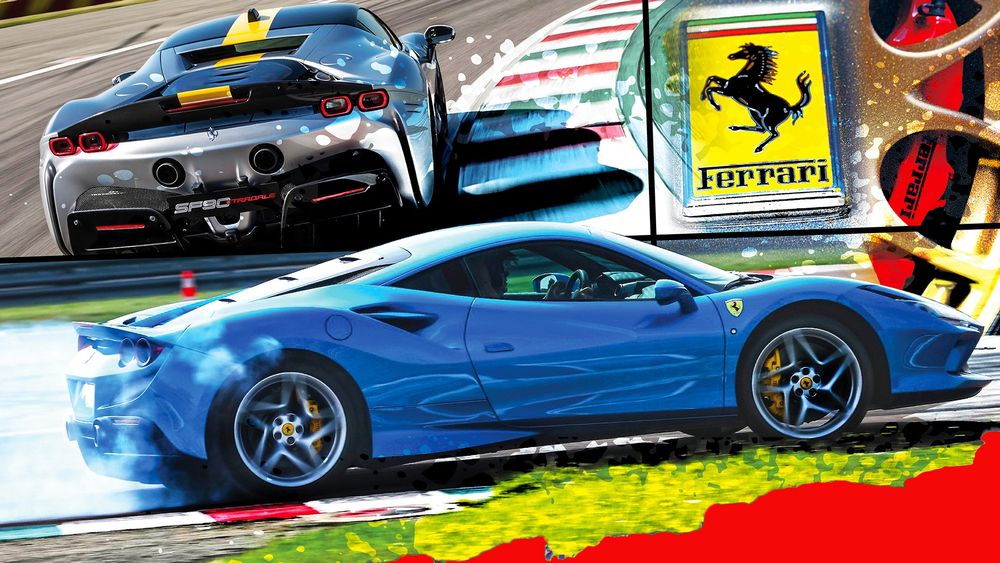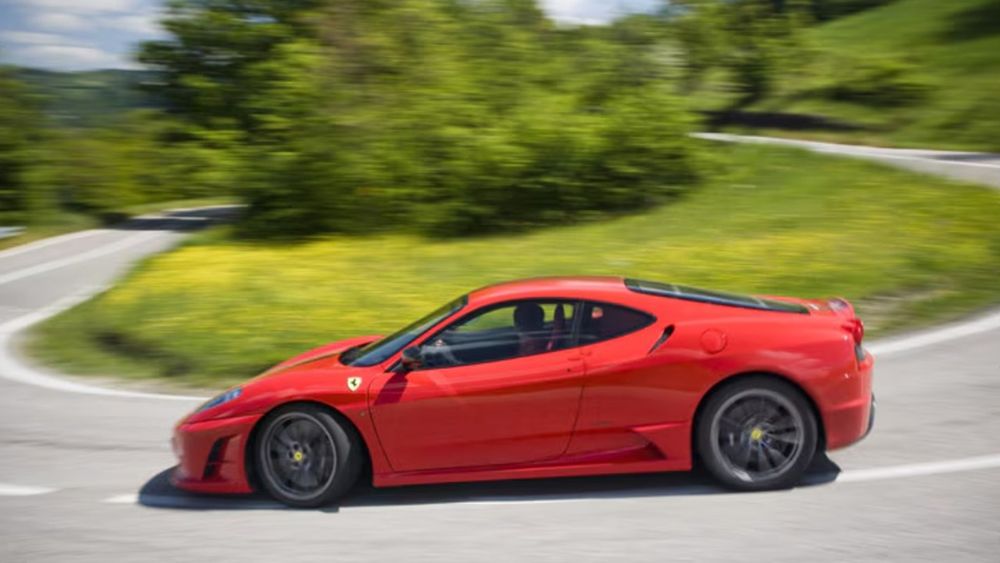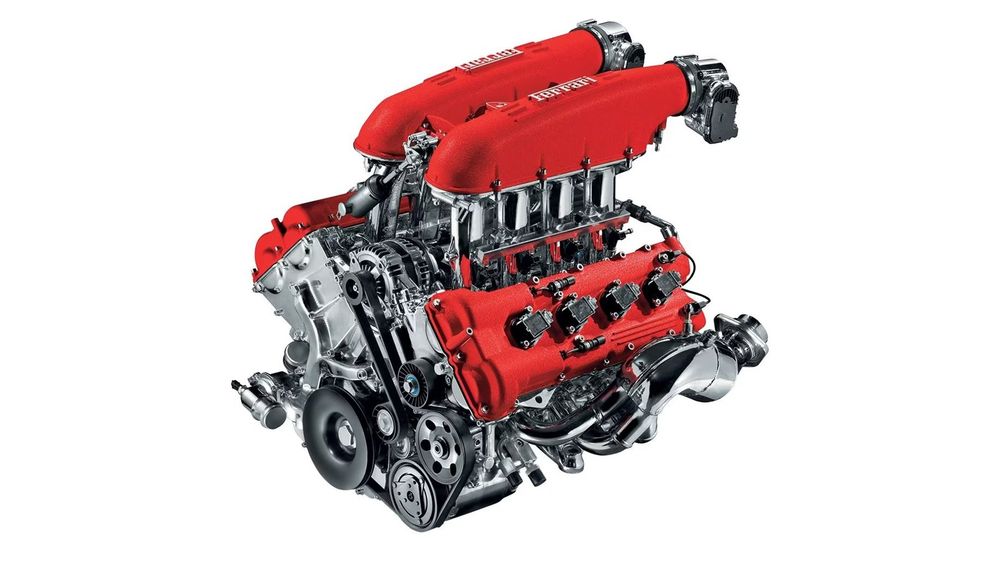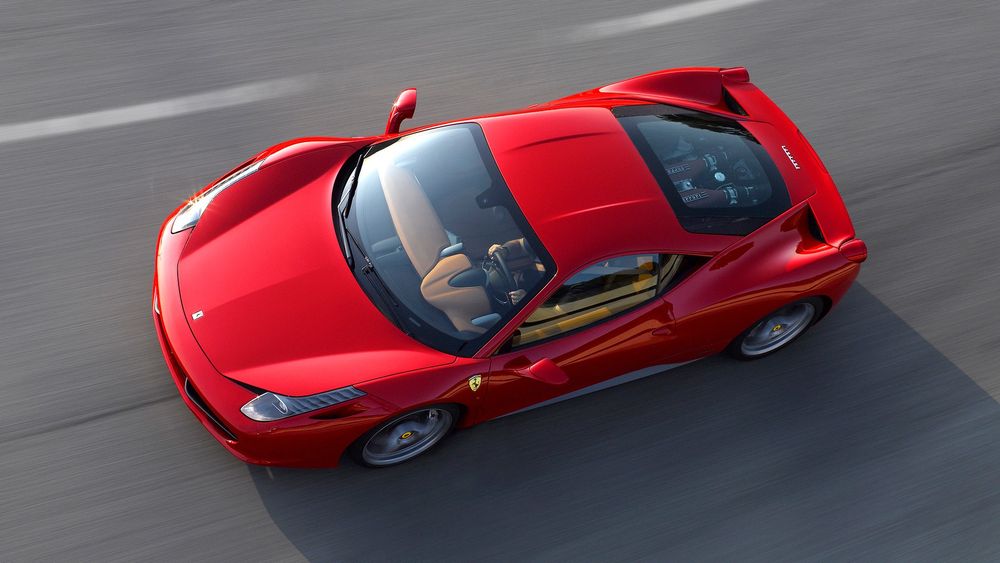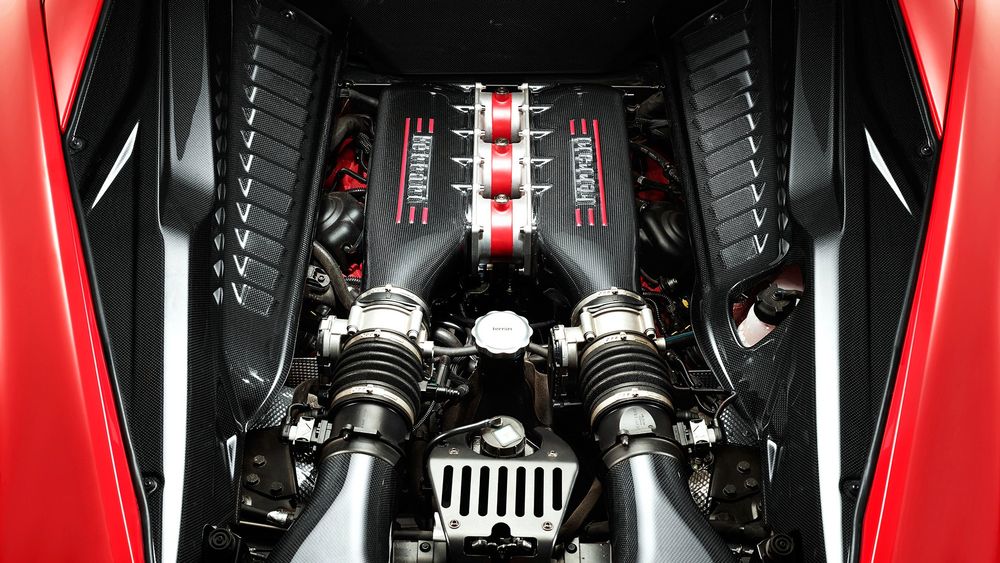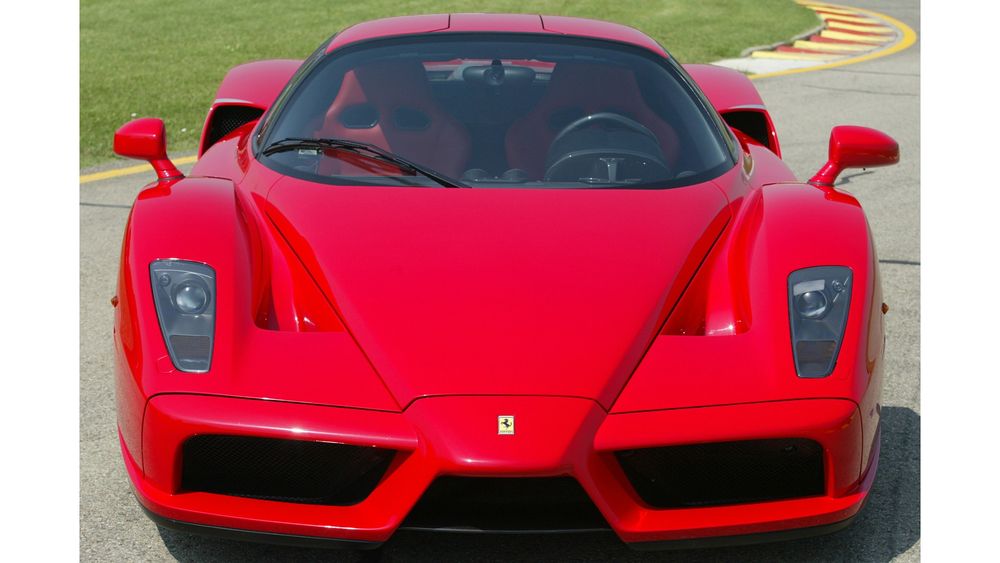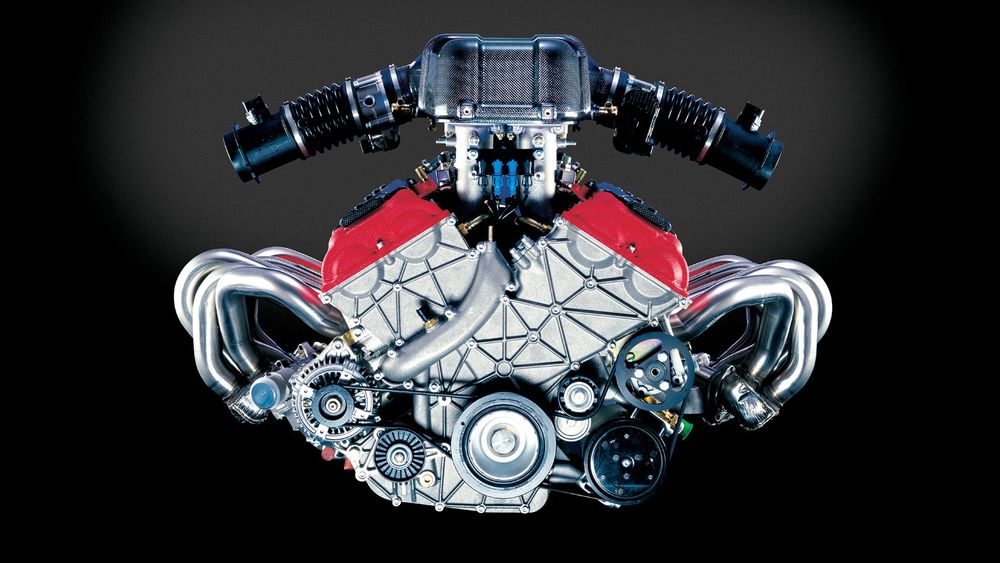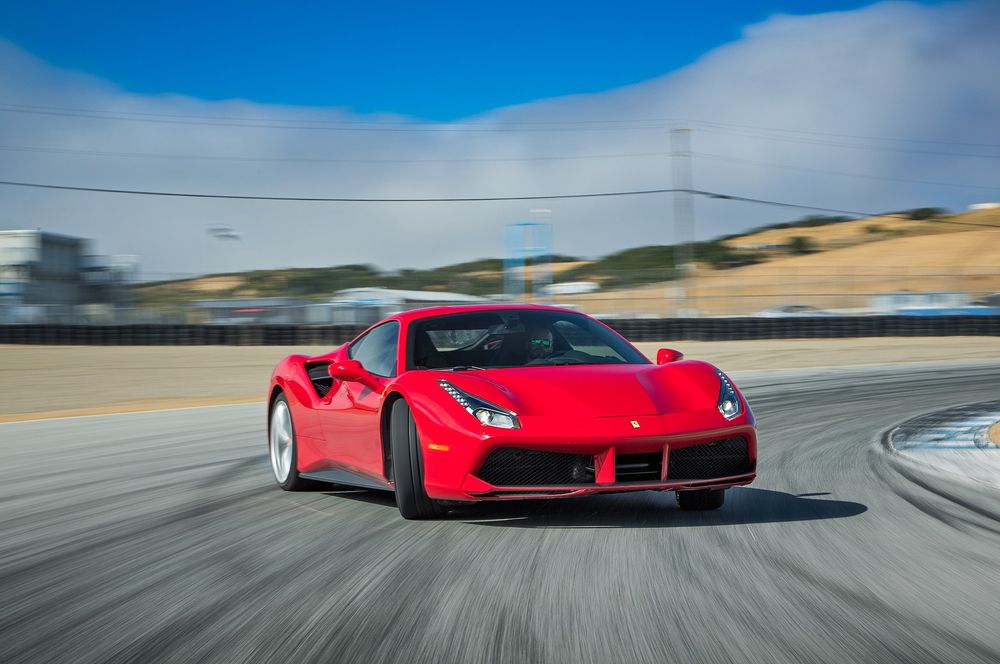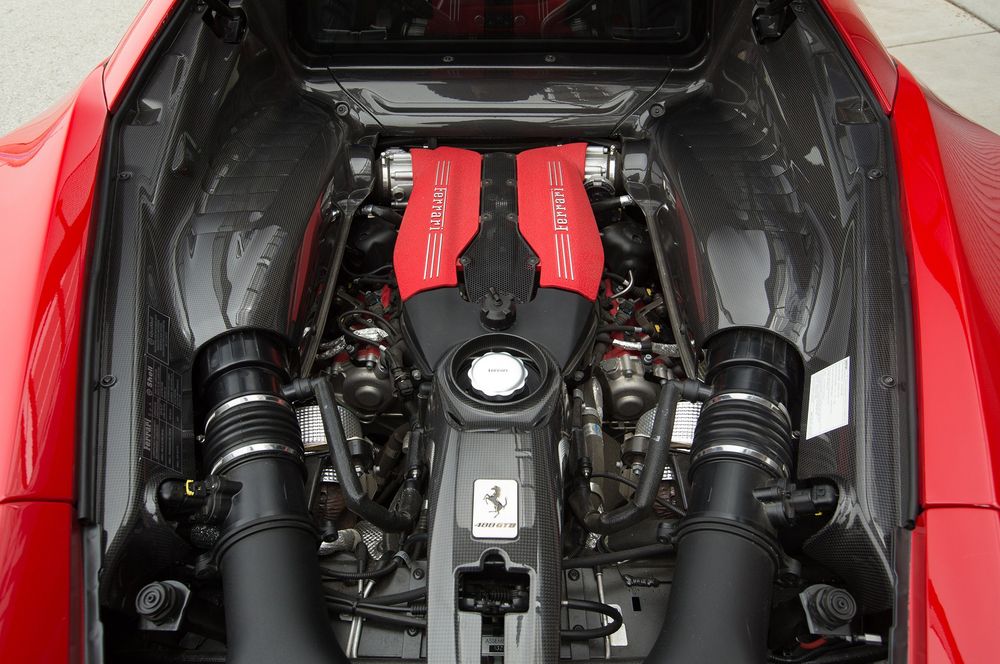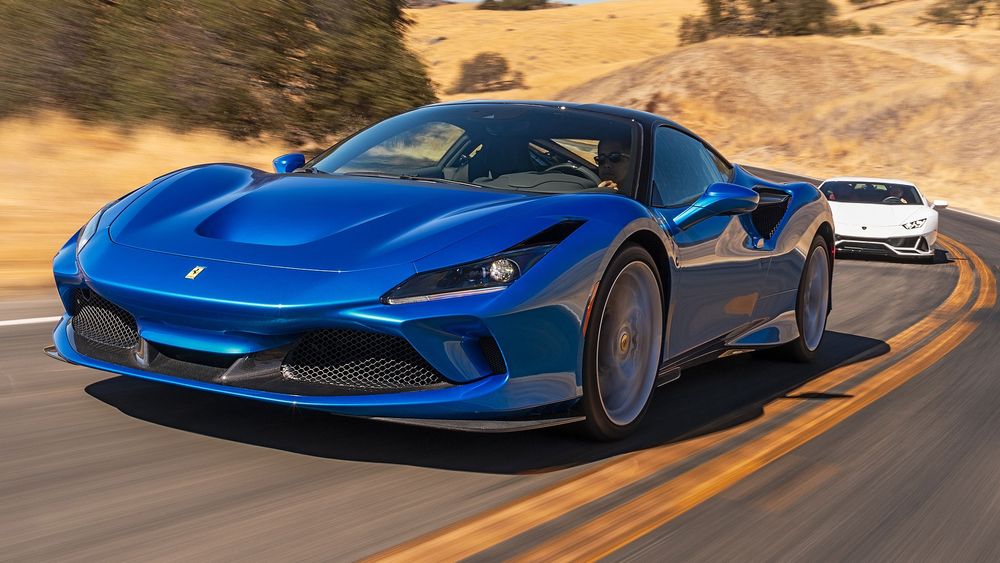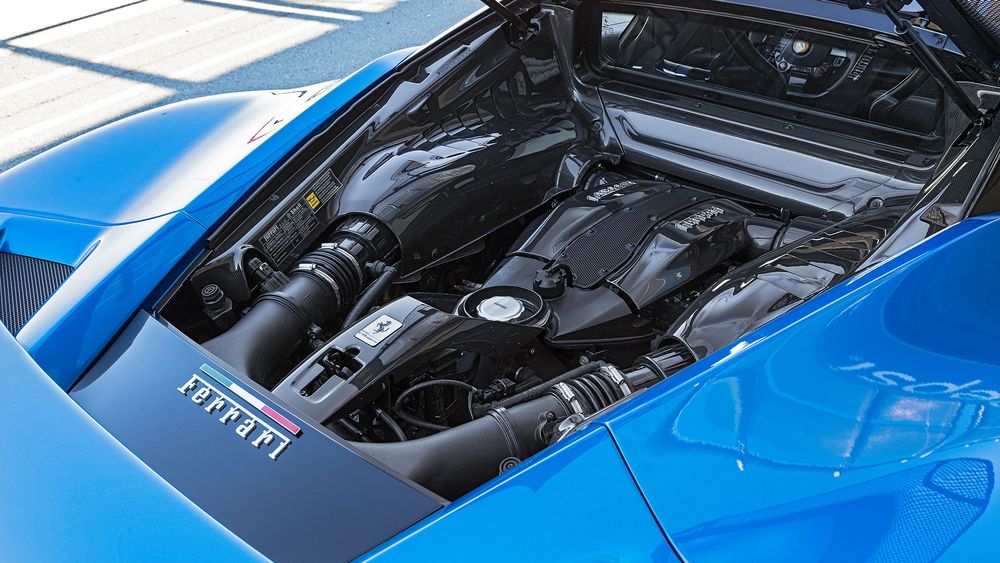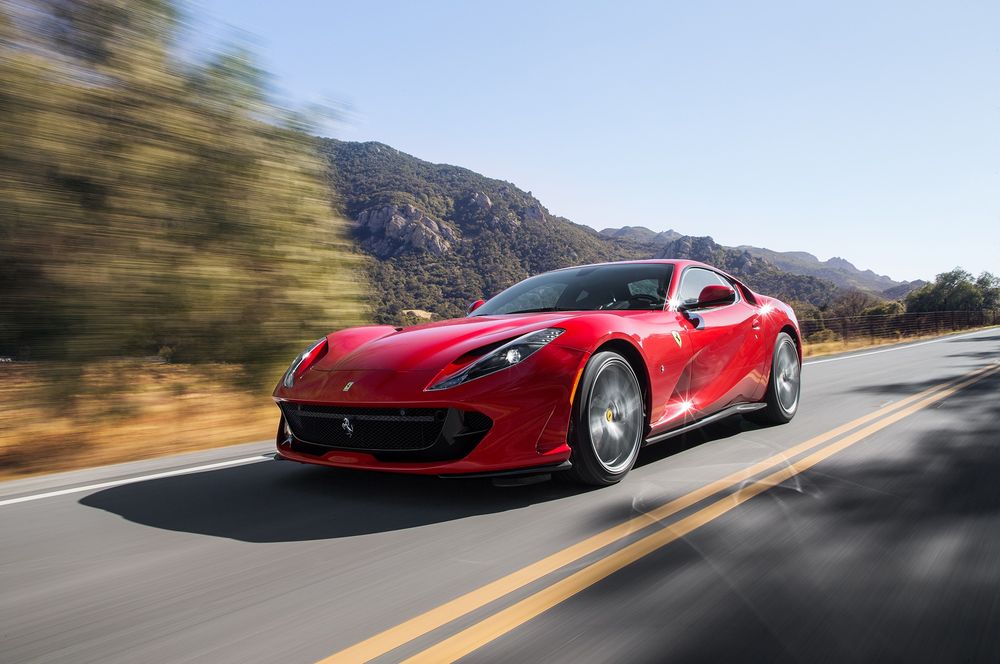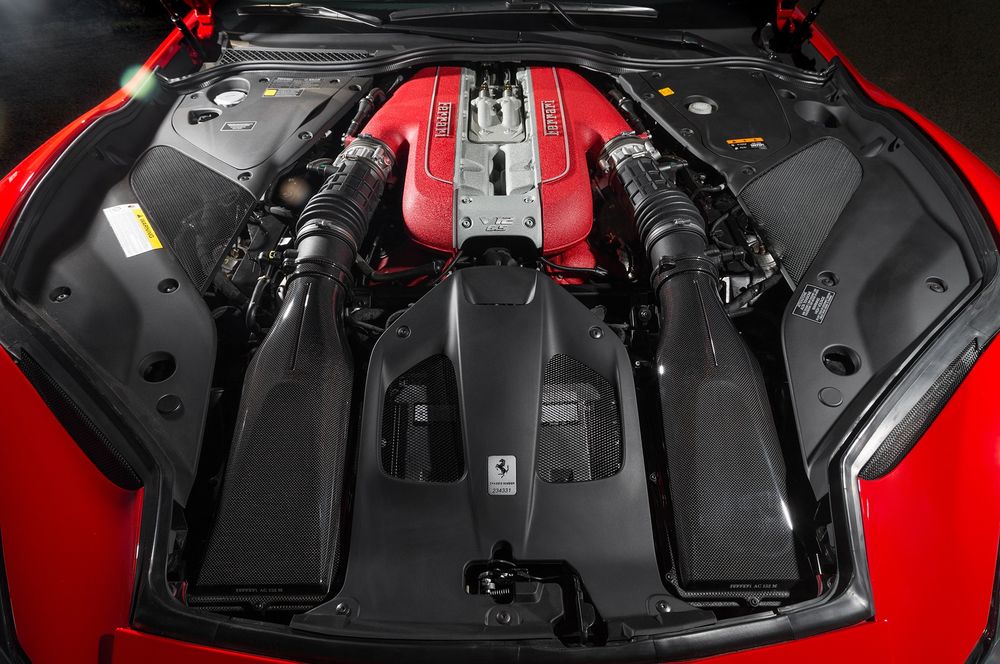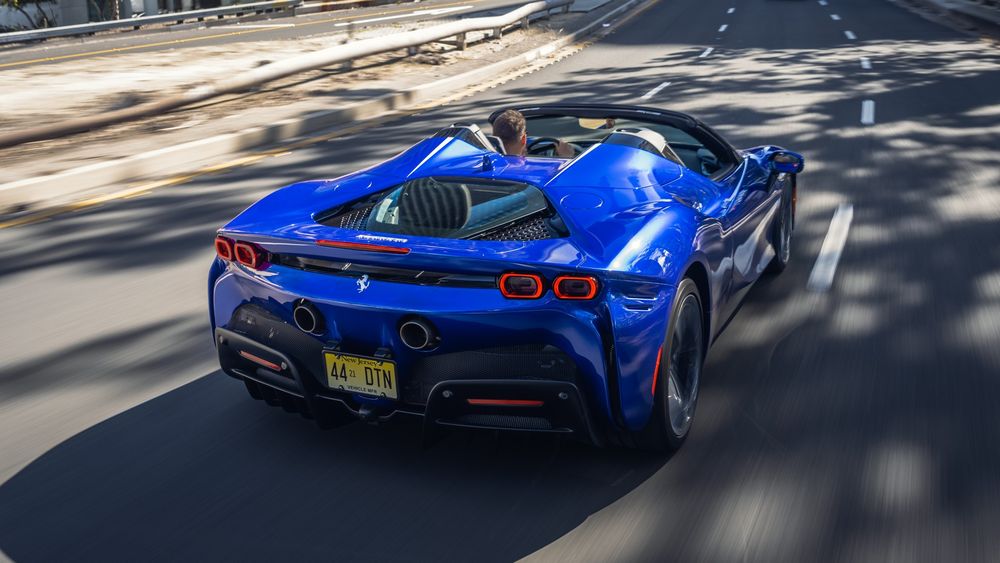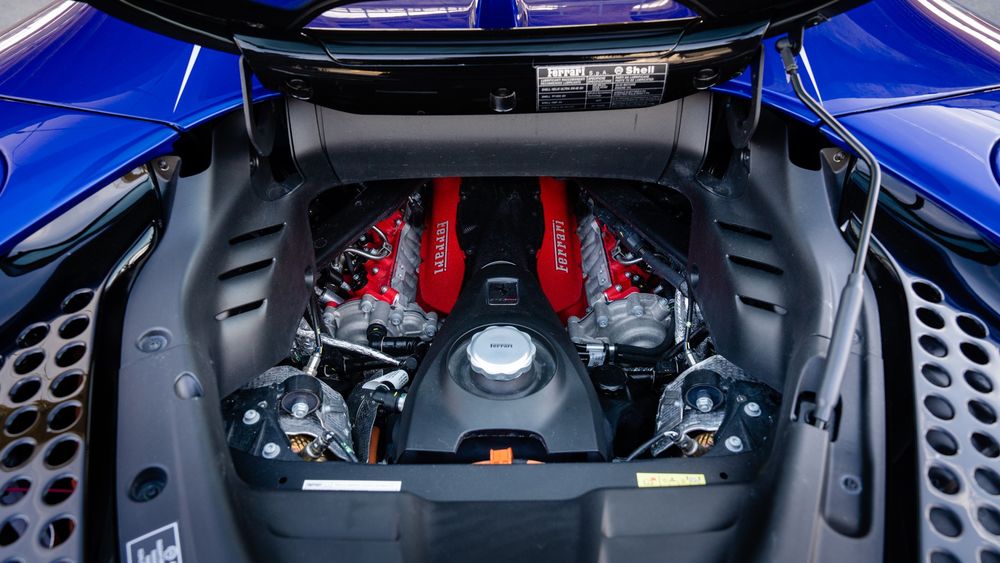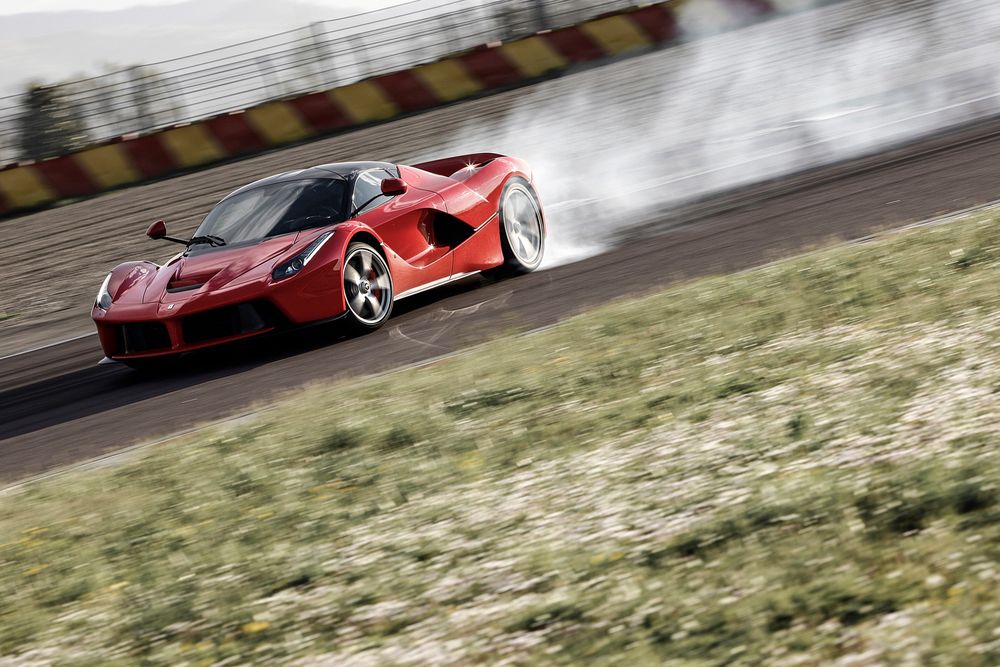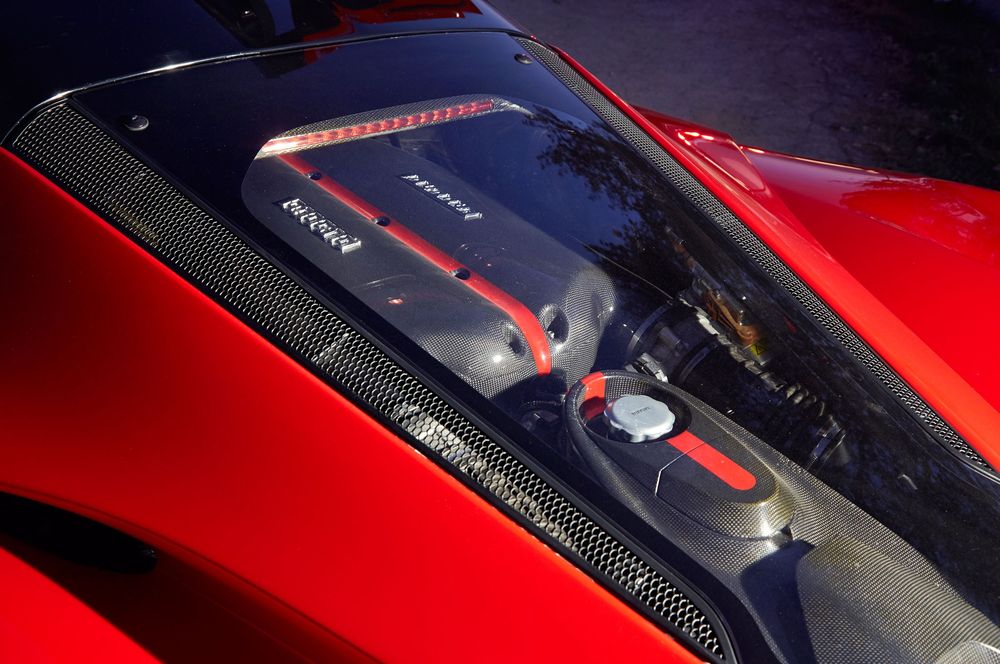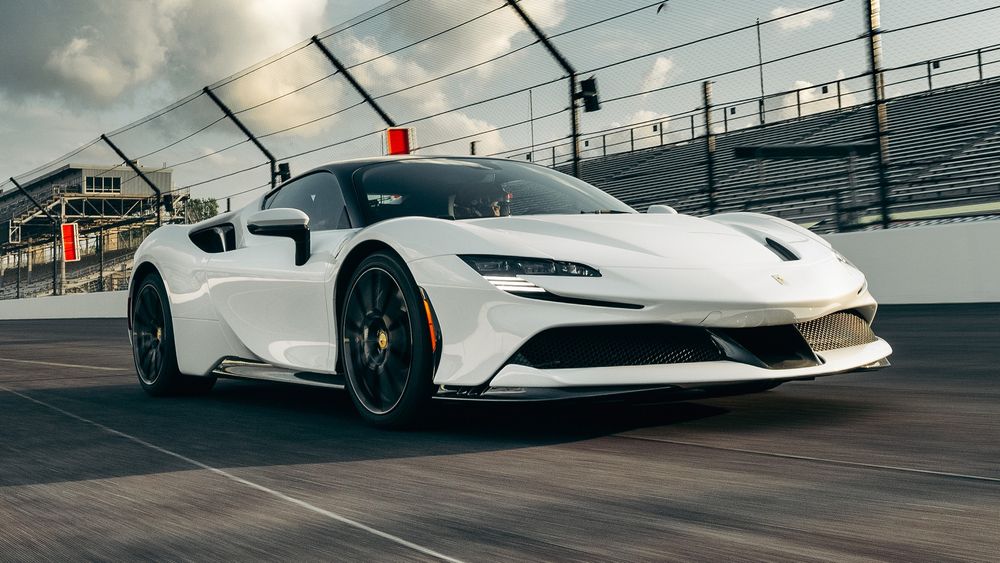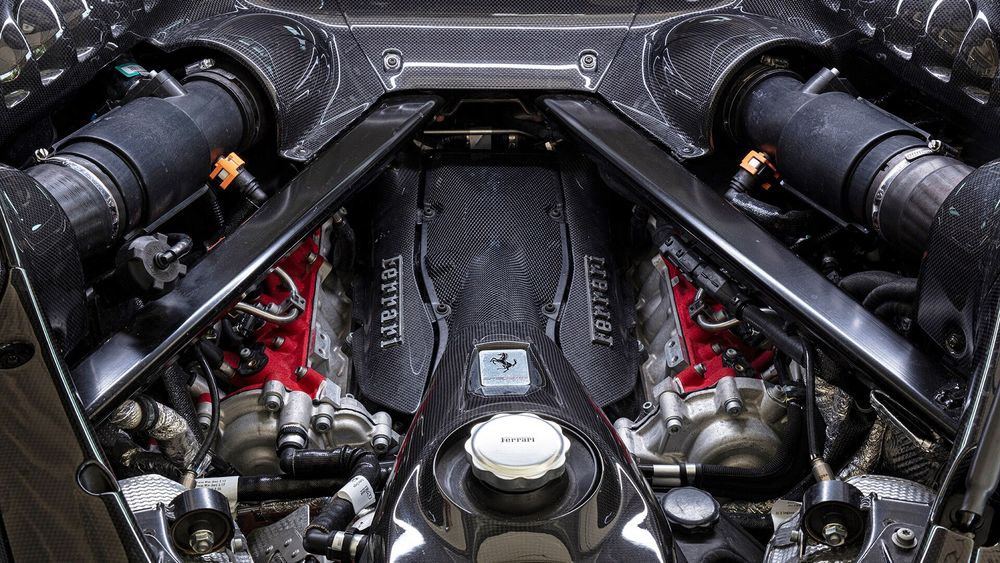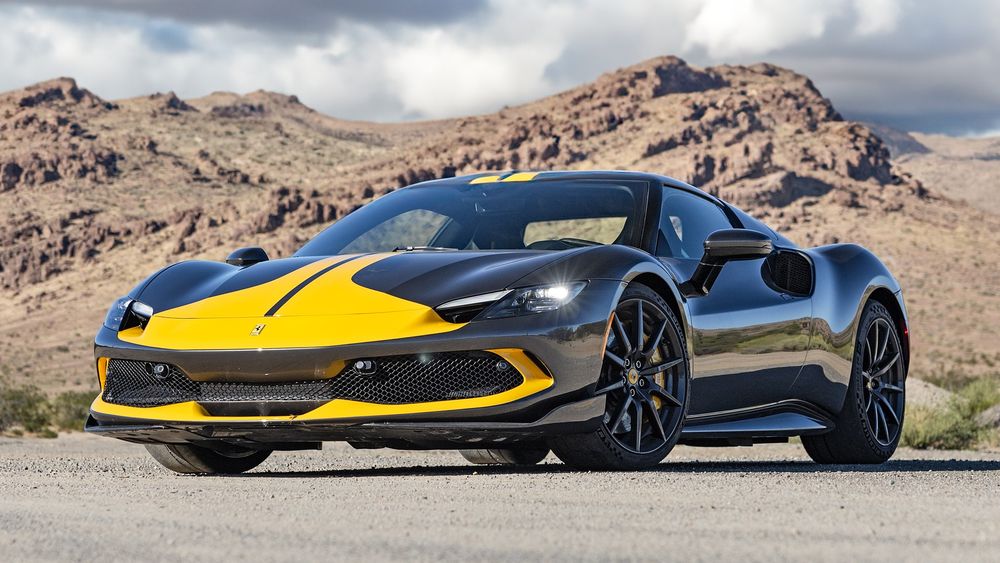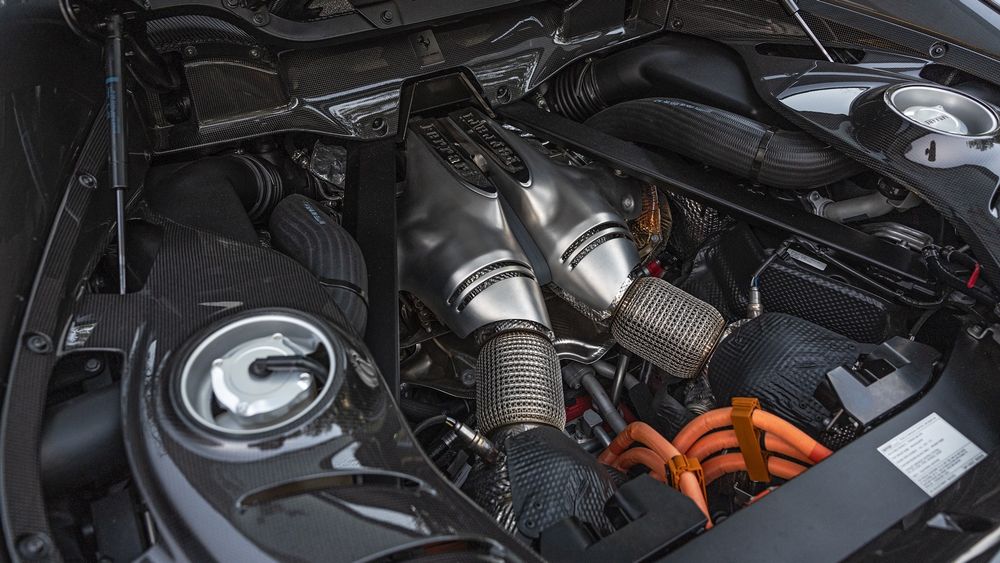The Fastest Ferraris MotorTrend Has Ever Tested
These Italian stallions don’t prance—they stampede through the quarter mile.
Ferrari doesn’t build slow cars. Never has. But even Italian supercars come in varying degrees of fast, ranging from quick but unremarkable to barely believable. Among the 10 fastest accelerating Ferraris that MotorTrend has ever tested, the slowest—ahem—is only a couple tenths away from a quarter mile in the ten-second realm.
0:00 / 0:00
Since 1997, when we started keeping a database of all our test results, MotorTrend has tested 32 prancing horses from the famed stable (Scuderia) in Maranello, Italy. It would be natural to think each new Ferrari would better its predecessor, but there are some models that clearly punched above their class or era, and others still that benefited from previously unimaginable tech. Most come from the mid-engine V-8 sports car/supercar range, which began in 1961 with the 246 SP, and others have descended from Ferrari’s classic front-engine V-12 rear-wheel-drive GT lineage. There are naturally aspirated engines, twin turbos, and hybrid powertrains on the list.
We compiled the ten fastest Ferraris based on quarter-mile times with the 1,320-foot trap speed serving as the tie breaker. Here are the 10 fastest Ferraris MotorTrend has tested from, uh, slowest to fastest.
10. 2008 Ferrari F430 Scuderia: 11.2 seconds @ 126.7 mph
Replacing the 360 Modena and with production spanning from model year 2004 to 2009, the Ferrari F430represented the wholesale upgrade of the mid-engine V-8-powered Berlinetta Coupe range with heavy influence and input from the company’s Formula 1 racing division. Every aspect of the car was upgraded and down-weighted. The naturally aspirated 4.3-liter flat-plane-crank V-8 (engine code F136E) increased horsepower by 23 percent and torque by 25 percent over the previous car’s 3.6-liter V-8. The compact dry-sump 90-degree high-compression (11.3:1) V-8 made 503 hp at 8,500 rpm and 347 lb-ft at 5,250 rpm. The evolved six-speed automated-manual paddle-shift transmission (single clutch) was said to reduce shift speeds to a then-unfathomable 60 milliseconds. Using a finicky launch control system, the car achieved a 3.1-second 0–60 time on the way to an 11.2-second quarter mile at 126.7 mph when we tested it at Ferrari’s Pista di Fiorano factory-adjacent racetrack in Maranello.
9. 2010 Ferrari 458 Italia: 11.1 sec @ 125.2 mph
Following the Ferrari F430, the Ferrari 458 Italia (2010–2015) was a further evolution of the mid-engine V-8 sports car. It’s 4.5-liter naturally aspirated V-8 (engine code F136F) increased the compression ratio to 12.5:1 and its redline to 9,000 rpm, providing an astounding increase of 147 horsepower and 51 lb-ft of twist. Better still, the transmission switched to a seven-speed dual-clutch automatic with a more robust launch control system. The apparent 463-pound weight gain between the F430 and 458 Italia we tested blunted the expected straight-line performance improvement. Still, in an unusual shootout with another Italian icon, a Ducati 1198 S motorcycle, the 458 Italia knocked off a 0–60-mph time of three seconds flat and a quarter-mile best of 11.1 seconds at 125.2 mph.The 458 Italia was no one-trick pony, either. It later wowed our panel of judges with its impeccable chassis and magic/telepathic handling and went on to win our 2011 Motor Trend Best Driver’s Car title, the first Ferrari to earn this accolade.
8. 2003 Ferrari Enzo: 11.0 sec @ 133.9 mph
Here’s an example of an overachieving Ferrari. Limited to a production of 399 examples for road use, the one-year-only 2003 Ferrari Enzo was built as a monument to the company’s—and Michael Schumacher’s—Formula 1 winning streak. Named after the company’s founder, the Enzo was the first road-going Ferrari to utilize carbon-fiber body panels, a carbon-aluminum honeycomb chassis, and carbon-ceramic brakes. Its 6.0-liter V-12 (engine code F140B) was, at the time, the most powerful naturally aspirated engine extant. The 5,998-cubic-centimeter 65-degree V-12 with 11.2:1 compression made 650 hp at 7,800 rpm and 485 lb-ft at 5,500 rpm. The transmission was a six-speed single-clutch automated-manual that Ferrari said shifted in 150 milliseconds, and its crude launch-control system merely allowed the driver to select an rpm at which the clutch plates would slam together.
In 2004, MotorTrend couldn’t just pick up the phone, call Ferrari public relations, and ask for an Enzo to test. This was the era when Ferrari explicitly forbade its cars from third-party testing, and an owner allowing theirs to be tested risked being blacklisted and prohibited from future purchases. Luckily, we knew an owner willing to take that risk when we tested one at Ford’s Arizona Proving Grounds. Besides its 3.4-second 0–60 time and 11.0 sec at 133.9 mph quarter-mile performance, we recorded a two-way average 211-mph top speed on a banked oval.
7. 2016 Ferrari 488 GTB: 10.6 sec @ 135.2 mph
Continuing the sports car line from the 458, the Ferrari 488 GTB (2015–2019) was the first turbocharged mid-engine V-8 the company offered since the legendary F40 of 1987. Breaking from the traditional Ferrari nomenclature of the 458 (4.5L 8-cylinder), 488 instead refers to the individual cylinder displacement of 488 cubic centimeters, for a total of 3.9 liters. Ferrari couldn’t very well go from 458 to 398, could it? This 3.9L 661-hp twin-turbo V-8 (engine code F154CB) set a new Ferrari production car record with its 169 hp per liter of displacement. For perspective, the supercharged 6.2-liter V-8 in the Corvette Z06 of the same year offered only 105 hp/liter for a total of 650 horsepower.
As did the 458 Italia, the Ferrari 488 GTB won our top sports car honor, MotorTrend’s 2017 Best Driver’s Car. We said, “Ferrari proves here and now why it's [again] the gold standard.” We praised how unrelenting, tractable, and linear the power was, how the second-gen vehicle dynamics system now controls the adaptive dampers, the traction control, the stability control, and the electronically controlled limited-slip differential for otherworldly handling.
6. 2020 Ferrari F8 Tributo: 10.5 sec @ 139.3 mph
Following its debut in the 488, Ferrari wasn’t done with its 3.9-liter twin-turbo V-8 just yet. The Ferrari F8 Tributo’s version (engine code F154CG) made 182 hp/liter for an eye-popping total of 711 hp @ 7,000 rpm. The lack of turbo lag and a plateau of torque (568 lb-ft from 3,250 up to about 7,000 rpm) promised great things.
Unfortunately, the power proved too much for the chassis, and what we called “wooden” brake feel left us wanting a more cohesive sports car. It finished sixth in MotorTrend’s 2020 Best Driver’s Car contest. Still, a car this beautiful that can run to 60 mph in 2.9 seconds on the way to a nearly 140-mph quarter mile is special indeed. We rarely test to the distance of a half mile; we did for that year's World's Greatest Drag Race 10, where the race-winning Ferrari F8 posted a formidable 16.2 seconds at 169.4 mph.
5. 2018 Ferrari 812 Superfast: 10.4 sec @ 138.7 mph
The front-engine V-12 rear-drive format is as old as Scuderia Ferrari itself. It all began in 1947 with the seminal Ferrari 125Sand its diminutive 1.5-liter SOHC V-12 (117 hp @ 6,800 rpm). Jump ahead about 70 years, and the V-12 in the Ferrari 812 Superfast (2017–2024) is megalithic in comparison. The 6.5-liter DOHC V-12 (engine code F140GA) makes 789 hp at 8,500 rpm.
While the 812 Superfast’s naturally aspirated engine is an evolution of the 6.0-liter V-12 in the mid-engine Ferrari Enzo, 15 years of technological advancement boosted output by almost 140 horsepower. Beyond the prodigious powerplant, the 812 Superfast was the first Ferrari with electric power steering. Combining it with the rear-axle steering found on the F12tdf, Ferrari updated and further integrated the system and called it Virtual Short Wheelbase 2.0.
When we first tested the 812 Superfast, we discovered it was “far and away the quickest front-engine rear-drive car” we’ve tested, and it remains so to this day. We also called it the 812 Stoopid fast and 812 Superfluous. “A car like this is as unnecessary as it is ostentatious, and that's what makes it wonderful.”
4. 2022 Ferrari SF90 Spider: 9.8 sec @ 146.0 mph
Although the Ferrari SF90 Stradale coupe (No. 2 on this list) predates this SF90 Spider convertible, both mid-engine cars feature a plug-in hybrid powertrain. Although not the first hybrid-powered Ferrari (see No. 3 on this list), it is named after the Ferrari SF90 Formula 1 hybrid racecar.
The SF90 street car(2019–present) utilizes the latest and most powerful version of the company’s twin-turbo V-8 (engine code F154 FA), highly upgraded and now displacing 3,990 cubic centimeters. The V-8 alone produces 769 hp at 7,500 rpm. Combined with two front and one rear electric motors, the SF90 achieves 986 horsepower, or just over 1,000 metric hp. Unlike a traditional “cannoli” electric motor where a rotor spins inside a tubelike stator, Ferrari’s axial-flux “pizza” motors have disc-like rotors that are coaxially mounted on either side of a flat stator. Being a plug-in hybrid, the SF90 uses an 8.0-kWh battery to travel up to 15 miles on pure electric power using the front motors alone at speeds of up to 84 mph. In fact, the SF90 is a front-wheel-drive, all-wheel-drive, or rear-wheel-drive car, depending on the drive mode and driving conditions. Watch the video of the SF90 Spider in action where the author/host describes it as “one of the single greatest driving experiences of my life.”
3. 2015 Ferrari LaFerrari: 9.7 sec @ 148.5 mph
Ferrari’s first hybrid, the limited-production LaFerrari (2013–2016), maintains its third-place position on our list 10 years on. Only 499 of these million-dollar RWD supercars were built, and they’re primarily powered by yet another version of the noble Ferrari V-12. This 6.3-liter high-compression (13.5:1) version (engine code F140FE) favored high-rpm output (the engine alone made 789 hp at 9,000 rpm) that was complemented by the instantaneous torque of a single electric motor, with the two powerplants paired to the rear wheels through a seven-speed dual-clutch transmission.
Combined output of the LaFerrari rose to 950 horsepower. Because the carbon-fiber-intensive chassis and body produced such a lightweight car overall, each horsepower moved just 3.7 pounds of car down the track. No other car on this list boasts such a fierce pounds-per-horsepower proposition. The LaFerrari’s performance was blistering.
2. 2021 Ferrari SF90 Stradale Assetto Fiorano: 9.6 sec @ 145.2 mph
Like the convertible version in the No. 4 slot on our list, the Ferrari SF90 StradaleAssetto Fiorano (literally street version, Fiorano Edition) is an all-wheel-drive plug-in hybrid super car. Lighter by about 200 pounds, this coupe proved quicker from a standstill to 60mph (2.1 seconds versus 2.3) and in the quarter mile (9.6 seconds versus 9.8) compared to the Spider. At the time, these performances earned the SF90 Stradale the title as both the quickest hybrid and quickest gasoline-powered car we'd ever tested. Both SF90 (2019–present) variants are powered by a 4.0-liter twin-turbo direct-injected DOHC 32-valve 90-degree V-8, plus two independent front and one rear axial-flux electric motor routed through a new eight-speed dual-clutch transmission.
1. 2023 Ferrari 296 GTB Assetto Fiorano: 9.6 sec @ 149.6 mph
Both the Ferrari 296 GTB and SF90 StradaleAssetto Fiorano broke the quarter-mile barrier in 9.6 seconds, but having a list like this end in a tie just wouldn’t feel right. Because the 296 GTB was traveling more than 4 mph faster than the SF90 at the 1,320-foot mark, it earns the top spot on our list.
The plug-in hybrid Ferrari 296 GTB boasts a number of other firsts, as well. It’s the first V-6-equipped Ferrari road car since the Ferrari Dino 246 GT (1969–1974). It’s also the quickest rear-wheel-drive car we’ve tested thus far; both from 0 to 60 mph as well as across the quarter-mile mark. It beat the no-holds-barred million-dollar RWD LaFerrari from 0 to 60 mph (2.3 seconds versus 2.4) and to the quarter-mile finish line (9.6 seconds versus 9.7).
Sure, the 296 GTB’s base price was $312,986 when we tested it, and adding a bunch of options including the track-oriented Assetto Fiorano package brought the as-tested price up to $507,751, but what a bargain for bragging rights, right? In case you were wondering, the next closest RWD supercar, the McLaren P1 (also a million bucks) made the dash to 60 mph in 2.6 seconds on the way to a 9.8-second quarter at 148.9 mph.
What’s special about the 296 GTB’s powertrain? Where to start? It’s a twin-turbo 2,992-cubic-centimeter DOHC 24-valve 120-degree (nearly “flat”) V-6 that makes 654 hp at 8,000 rpm on its own—that’s 219 horsepower per liter! Adding Ferrari’s axial-flux “pizza” electric motor between the engine and transmission raises the combined output to 818 horsepower. And while it weighs 3,528 pounds, it punches an almost MX-5-Miata-sized hole through the air. What a time to be an automotive enthusiast.
What started as my father’s passion and later my whim as a young adult turned into an unexpectedly fulfilling career. I still have the glossy black and white photos of my proud dad in his rolled-up T-shirt and dungarees standing next to his early ’50s jet-black straight-eight Pontiac, his Jaguar XK120 he bought when he got out of the Navy then sold to go to college, and the Austin Healey 100 they drove to the hospital when Mom gave birth. Growing up in Southern California where car culture was everywhere, my dad was a Road & Track guy, I was a Cycle World reader, and my first car was inherited from my Hot-Rod grandmother; her 1969 AMC Javelin SST with the optional Go Package. That car and later a string of motorcycles saw me through college. In 1995, when I peered across Wilshire Boulevard from a generic office job, I saw the Petersen Publishing sign and a bell rang in my head, “Hey, wouldn’t it be fun to write about cars and motorcycles?” I marched a resume and writing sample across the street and was an editorial assistant at MotorTrend a week later. After a few promotions, company ownerships changes, and bouncing from driving school to driving school, in 2001 I landed in the driver’s seat track testing the vehicles we all write about – about 5,000 so far. Thanks to this career (including a 10-year sojourn at Edmunds), I’ve been lucky enough to travel the world, race in the Baja 1000, be the last person to drive at speed up Pike’s Peak before it was fully paved, drive a Formula 1 car in Barcelona, and test nearly every car, truck, and SUV available for the past 30 years. Since that first potential jaywalking infraction, what a drive it’s been. Thank you, MotorTrend.
Read More
